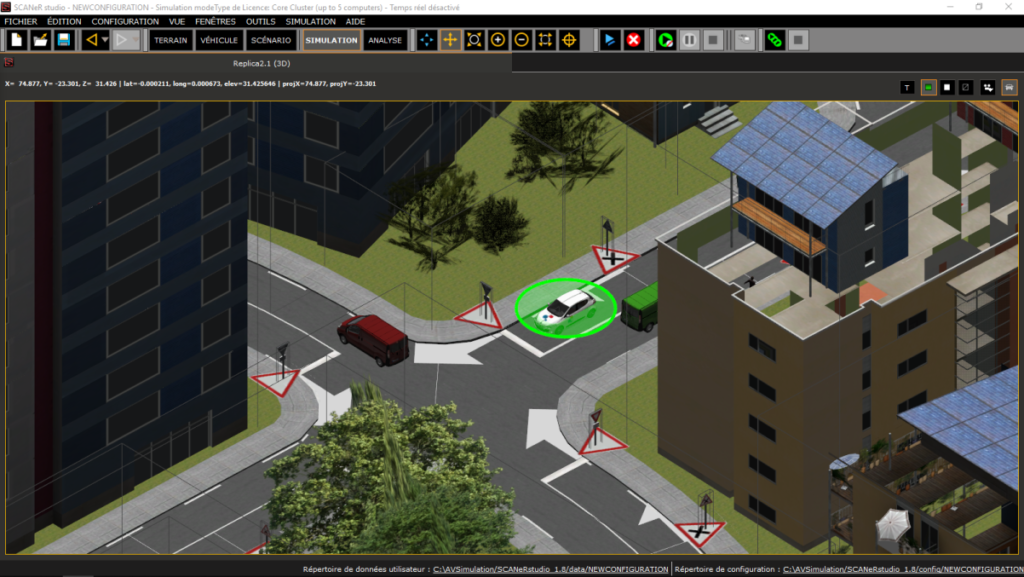In this example, we will discuss the benefits of Model Based Testing in the context of autonomous vehicle validation.
Benefits of Model Based Testing
Consideration of any real case
Explore all the possibilities of your land models (highways, interchanges, cities, traffic circles, etc.). Thanks to Model Based Testing (and MaTeLo 😊 ), you can take into account the variability offered by the simulator, including for traffic and infrastructure models.
Graphic design of the tests
Runs all unit tests sequentially without resetting your test environment. Automatically merges unit operations in complex test cases to simulate real and complex travels
Simulation of rare cases
Lets traffic flow in your simulation to create unpredictable and complex situations. Allows minimal sample combinatorics to provide the best coverage due to high variability.
AUTOMATISATION VIA SCRIPTING
Calculate the test oracle and check the result of each test to get an overall verdict. Create a graphical report of variability, equivalence class coverage and requirements for each test.
A complete validation strategy
We provide you directly in the MaTeLo tool different maneuvers libraries to manage unit tests (cut-in, cut-out, zip-in, merging, etc.) that you can use and adapt according to your functional requirements to create complex scenarios.
MaTeLo generates thousands of test combinatorics for each type of manoeuvre by varying the parameters (distances, inter-distances, speeds, events and external actions).
The tests generated by MaTeLo are graphical, reproducible and can be stored in any ALM or database. They can also be exported in different formats and can be executed in 3D simulation tools, such as SCANeR.
MaTeLo’s advanced algorithms will provide you a representative sample of variability and combinatorics with minimal redundancy, to simulate large driving distances and reduce simulation time.
Compliance with the SOTIF standard
The variability of a unit test case is in accordance with the ISO 2626-2 standard and with §10 of the SOTIF: “Evaluating known use cases”.
MaTeLo can also execute and sequence unit test cases directly in the simulator, with the “on-line” generation method allowing a closed loop interface between MaTeLo and the simulation tool.
This method allows the creation of unknown and unpredictable use cases in accordance with §11 of the SOTIF standard.
Instanciation of the method with the SCANeR tool of AV Simulation
This demonstration project is integrated into MaTeLo and allows you to perform complete tests, including cut-in/cut-out, pedestrian crossing consideration, etc. You can directly execute this project and you have a proof of concept ready to use.
This example used in on-line mode in MaTeLo allows you to create a dynamic closed loop with SCANeR that takes care of the simulation.
Watch live the behaviour of the autonomous vehicle, its reactions in traffic and in an environment that is constantly changing and visualize in parallel the corresponding route in the MaTeLo model.
For each possible unit test, MaTeLo asks SCANeR to detect events in real time during the simulation with an initial variability defined by MaTeLo.


